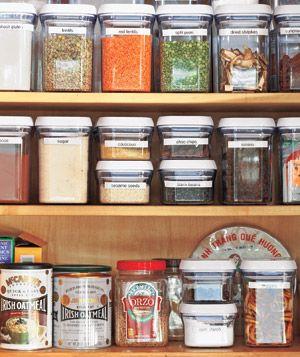This month we’ll be talking about constipation. I’ll talk about the root causes, what tests you can do to find the constipation causes when the usual culprits are not at play. Then next month I’ll give you a guide as to other strategies that can help to ease constipation symptoms. As well as, what you should not do, in regard to ‘medications’ that manage constipation. And, how our good old friend stress, can play a role in causing constipation.
For many it's a myth that constipation is just temporary or can be solved with simple lifestyle changes like drinking more water, exercising and eating more fibre.
Many who experience chronic constipation will find their constipation persists in spite of doing all the right things. They’ve tried all the usual remedies and they either don’t work or they work but bring horrible side effects like bloating and cramping.
Constipation meaning
The American Society of Gastroenterology defines constipation as having fewer than three bowel movements per week. Symptoms may include infrequent stools, hard stools, incomplete emptying of bowels and straining to have a bowel movement.
You may have been diagnosed with IBS-C (constipation) or functional constipation (more from the ROME foundation about the minor differences) but the greater issue is that constipation itself is a symptom with an underlying root cause. You can dig deeper into finding this root cause and then the solution to fix it. Don’t just accept a diagnosis of constipation, a symptom that can have dramatic negative effects on your life, you need to find out why you have it.
Management strategies like laxatives or restrictive diets are the band aid and only suppress the symptom in the short term. If you don’t identify and treat the underlying cause of your constipation, it’s likely to get progressively worse over time.
Here are three of the most common constipation causes we see in the clinic
(there are definitely others but I see these the most):
- SIBO
According to some studies as many as 85% of those with IBS have SIBO as the cause. You can read more about SIBO here but when it comes to constipation methane producing archaea are responsible for the slowed transit time and ultimately the constipation.
There is a breath test available to help us identify is you have SIBO, how far up in the small intestine it’s residing and how much methane (or hydrogen) is being produced. This helps us to develop the treatment plan.
- Parasites and gut infections
A nasty gut bug can come from anywhere, anytime. It might be an overseas trip or food poisoning that you get when eating out of the wrong restaurant; overly familiar pets or a water supply in your home town because there’s been some sort of outbreak...you never know what's going to give us symptoms we don't want: nausea, vomiting, diarrhoea, headaches, muscle aches, dizziness, fatigue, constipation or rashes.
Antibiotics are often given as a treatment for all sorts of bacterial infections, but they can also contribute to the development of conditions such as Candida overgrowth and SIBO (small intestinal bacterial overgrowth). While the antibiotics will likely successfully eliminate the bacterial infection from your body they also have an impact on all other microorganisms in the gut. It creates an environment that is conducive towards opportunistic infection causing long term health problems like irritable bowel syndrome, candida overgrowth or constipation.
Pathogenic bacteria can give off neurotoxins to ‘paralyse’ the muscles around your intestines, slowing peristalsis (intestinal movement) so that they don't get removed with stool as easily. This creates an environment for pathogens to grow and proliferate even more!
When we talk about gut infections, the most common ones are:
1). Parasites; these include Blastocystis hominis and Dientamoeba fragilis.
2). Bacteria such as Helicobacter pylori in the stomach or Citrobacter, Klebsiella or pseudomonas
3). Fungi/Yeast like Candida albicans which flourish when there is an imbalance of good vs bad bacteria
What does this mean? It means any of these may be contributing to your mild to severe constipation and so you should explore if they are relevant for you with the right testing.
- Food intolerances
Food intolerances are common in IBS sufferers, with reactions to gluten and dairy being the most prevalent. These are followed closely by soy and eggs. Other triggers can include true food allergies (this means they have an abnormal production of antibodies against certain foods) as well as enzyme deficiencies leading to milder conditions like lactose intolerance and disaccharide deficiency for example.
Clients can also be experiencing symptoms due to how their gut bacteria responding to certain foods. Our gut bacteria ferment certain foods more than other (see low FODMAP diet information) and this is a big cause of constipation.
In our clinical experience, we’ve seen many patients with IBS who also have allergies or intolerances to certain types of foods; these are often caused by the conditions discussed above--gut infections leading to leaky gut syndrome are common causes too.
Other constipation causes include –
- Lack of exercise
- Some medications – in particular, codeine which is in pain medication such as Panadeine, Panadeine Forte
- Surgery, especially abdominal
- Pregnancy
- Hypothyroidism – due to your metabolism slowing down
- Irritable Bowel Disease (IBD)
- Food intolerances – lactose and gluten, being the main suspects
- Illness/injury – due to reduced movement and food intake
- Holding off going to the toilet – you begin to ‘turn off’ your body’s response to opening your bowels
- Overuse of laxatives
- Intestinal microflora imbalance – caused by antibiotics, illness, food intolerances, poor diet
- Parasites
- Poor digestion – due to reduced gastric acid, enzymes or bile
How to find the root cause of your constipation
The first step to treating your constipation is figuring out the root cause. Testing can help with this, and there are several types of stool tests that may be done as well as breath testing for SIBO or elimination diets if food sensitivities are a possibility. Once we know what might have caused an infection in your gut then we'll know how best to address it!
The most common tests we use are:
- A Comprehensive Digestive Stool Analysis (CDSA) or microbiome mapping.
This is a stool test that looks at many things that might affect your digestive system, leading to constipation. It looks at –
- Your microbiome, to see if the ‘ecosystem’ is balanced – whether there is an overgrowth of pathological bacteria or yeast or a lack of good bacteria
- If you might have any parasites or worms
- It tests for inflammatory and immune markers
- Short Chain Fatty Acids – checking if your levels are sufficient
- Intestinal permeability – you might know this as ‘leaky gut’, measuring zonulin
- A SIBO breath test
A SIBO test is checking to see if you have an overgrowth of bacteria that produce hydrogen or methane in your small intestine. If you have an overgrowth of methanogens it’s likely you will experience constipation and so dealing with this will help reduce the chance of you being constipated.
- Full thyroid panel
You may have other symptoms that indicate that you have a slow thyroid. So a blood test looking at thyroid function would be indicated in this case.
Testing is covered as step 2 in my Gut Fix Program . For more information and to find your constipation causes click below.


